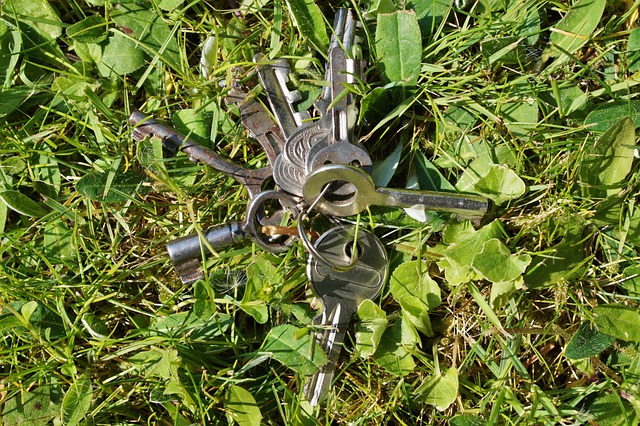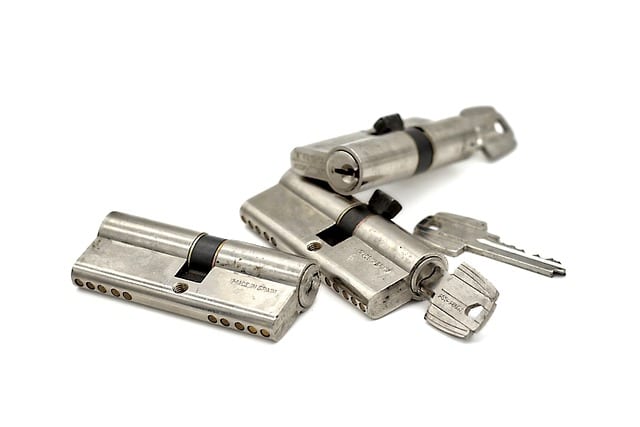Losing your house, office, school, or business keys can be a highly inconvenient and stressful experience. Fortunately, there are key replacement services designed to alleviate this burden. In Ireland, the primary options for key replacement include locksmiths and key-cutting services. Each offers distinct advantages, catering to various circumstances and budgets. This article aims to guide you through the process of selecting the best service for your key replacement needs.
Understanding Different Types of Keys
There are several types of keys used for homes and businesses, each with unique complexities that can influence the replacement process and cost. Common types include:
- Traditional Keys: The most common and simplest type, used for basic locks without any special features or security functions.
- Security Keys: These keys are for more advanced locking systems and often have unique designs or codes, making them more secure but also more complex to replicate.
- Electronic Keys: Used for modern security systems, these keys might include keycards or fobs for access control systems.
- Master Keys: Often used in businesses or schools, master keys can open multiple locks, which makes their replacement a more sensitive and potentially complex process.
Knowing the type of key you need replaced is fundamental in estimating the complexity and potential cost of replacement.
Cost of Key Replacement in Ireland
The cost of key replacement varies depending on the type of key and service chosen:
- Traditional Keys: These are generally the least expensive to replace, with costs ranging from €5 to €20.
- Security Keys: Due to their complexity and the need for specialised equipment to replicate them, security keys can cost anywhere from €20 to €100.
- Electronic Keys: The cost for replacing electronic keys can vary greatly, typically between €25 and €200, depending on the technology involved.
- Master Keys: As they provide access to multiple areas, replacing these keys can be costly, ranging from €50 to €200, depending on the system’s complexity.
These estimates can vary based on the service provider, the lock’s brand and model, and any additional security features. It’s advisable to get quotes from several providers for the best value.
Choosing Between Locksmiths and Key-Cutting Services
In Ireland, the choice between locksmiths and key-cutting services for key replacement depends on various factors, including the complexity of the key, the level of service required, and the urgency of the situation.
Locksmiths for replacement keys
Locksmiths are professionals who specialize not only in key creation but also in the entire lock and security system. They are particularly useful in more complex scenarios.
Pros:
- Expertise: Locksmiths are extensively trained in handling a wide range of key types and lock systems, including modern electronic and high-security locks. They are well-equipped to deal with complex situations such as broken keys in locks, security system malfunctions, and emergency lockout services.
- Convenience: Many locksmiths provide mobile services, meaning they can come to your location. This is especially beneficial if you’re locked out of your home or office, or if the key is for a fixed lock that cannot be easily removed and brought to a shop.
- Security: Beyond key cutting, locksmiths can offer a comprehensive security check of your premises. They can recommend upgrades to your locking mechanisms, install new locks, and provide advice on enhancing overall security.
Cons:
- Cost: Due to their specialised skills and the convenience of mobile services, locksmiths generally charge more than key-cutting services. The cost can increase significantly for high-security keys, emergency services, or after-hours call-outs.
- Availability: While many locksmiths offer emergency services, not all operate 24/7. Availability might be an issue, especially during holidays or outside standard business hours.
Key-Cutting Services
Key-cutting services are typically more basic and are often found in hardware stores or shops specialising in standard key replication.
Pros:
- Cost: For basic key duplication, key-cutting services are usually more affordable. They are a cost-effective choice for standard house or office keys without special security features.
- Speed: These services often provide quick turnarounds, making them ideal for situations where you need a standard key copied in a short time frame.
Cons:
- Limited Services: Key-cutting services usually don’t offer the range of services a locksmith can provide. They are best suited for straightforward key duplication and may not be equipped to handle keys with advanced security features, electronic keys, or car keys with transponders.
- Expertise: Staff at key-cutting services may not have the same level of training as professional locksmiths. While they are skilled in basic key replication, they might not have the expertise required for more complex key systems or to provide comprehensive security advice.
Making Your Choice between a professional locksmith and a simple key cutting service
When deciding between a locksmith and a key-cutting service, consider the following:
- Type of Key: For advanced security keys, electronic keys, or if you need additional security services, a locksmith is usually the better choice. For basic key duplication, a key-cutting service will suffice.
- Cost Consideration: If budget is a concern and the key is standard, a key-cutting service may be the most economical option.
- Urgency and Convenience: If you require immediate service (like in lockout situations), a mobile locksmith is your go-to solution.
- Additional Services Required: For comprehensive security assessments or installation of new locks, opt for a locksmith.
By evaluating your specific needs, the complexity of the key, and the level of service required, you can make an informed decision on whether a locksmith or key-cutting service is best for you.
The Key Replacement Process
The process of replacing a key involves several steps:
- Identify Your Key Type: Know what type of key you need replaced.
- Choose a Service: Decide between a locksmith and a key-cutting service.
- Contact the Provider: Discuss your needs and provide any necessary information.
- Key Replacement: The provider will create a new key, which may involve cutting a new key or programming a new electronic component.
- Payment and Receipt: Finalise the service with payment and obtain a receipt.
Lost or Stolen Keys for Various Business Types
Losing or having keys stolen poses significant security risks, particularly for businesses. Each type of business has unique security needs and considerations. Here’s how the loss of keys might impact different business sectors and the necessary steps to mitigate risks:
Shops and Retail Businesses
- Immediate Risk: Shops often contain valuable stock. Lost or stolen keys can lead to theft, endangering both inventory and sensitive customer data.
- Rekeying Necessity: Immediate rekeying is crucial to prevent unauthorised access. High-traffic shops may also consider installing more secure, programmable locks that can be easily re-coded in the future.
- Additional Security Measures: Installation of CCTV and alarm systems as a deterrent and means of monitoring.
Schools and Educational Institutions
- Child Safety: The primary concern is the safety of students. Compromised security could lead to unauthorised access, endangering students.
- Comprehensive Rekeying: Schools should consider rekeying all affected locks, possibly upgrading to a more secure system with controlled access.
- Periodic Security Review: Regular audits of security protocols and access control systems, ensuring that all keys are accounted for and only authorised personnel have access.
Hospitality Industry (Hotels, Restaurants, etc.)
- Guest Security: Lost keys can compromise guest safety and privacy. Hotels and restaurants need to prioritise immediate rekeying.
- Upgraded Systems: Consider switching to key card systems or digital locks, which offer better control and can be reprogrammed easily in case of key loss.
- Regular Staff Training: Ensure staff is aware of security protocols and the importance of immediately reporting lost or stolen keys.
Factories and Industrial Settings
- Risk to Equipment and Intellectual Property: Unauthorised access could lead to the theft of expensive machinery or sensitive information.
- Access Hierarchy: Implementing a hierarchical access system where only certain individuals have access to critical areas.
- Regular Audits and Inventory: Frequent checks to ensure all keys are accounted for and that no unauthorised copies have been made.
Apartment Blocks and Residential Complexes
- Resident Safety: The safety of residents is paramount. Lost keys can compromise the security of shared entrances and individual units.
- Immediate Notification and Action: Inform residents of the situation and rekey necessary locks as soon as possible.
- Consider Master Key System: For easier management but ensure it’s a secure system with restrictions on key duplication.
Office Buildings
- Information Security: Offices often contain confidential data. Lost keys can pose a risk to information security and physical assets.
- Access Control System: Implement a card-based or biometric access system for better control and monitoring of who accesses the building and when.
- Employee Awareness: Regular briefings on security protocols and the importance of key management.
General Considerations for All Business Types:
- Insurance Implications: Check with your insurance provider on the implications of lost keys and the requirements for maintaining your policy.
- Improved Security Systems: Consider upgrading to electronic or smart lock systems, which provide better control, audit trails, and ease of reprogramming.
- Security Training for Staff: Regular training sessions for staff on security protocols and the importance of key management.
- Emergency Response Plan: Have a clear plan in place for when keys are lost or stolen, including immediate steps to secure premises and notify relevant personnel and authorities.
- Backup Keys: Maintain a secure, off-site location for backup keys, ensuring they are accessible to authorised personnel in emergencies.
In all cases, the immediate step after losing keys should be to assess the risk and take necessary actions, including rekeying and enhancing security measures to prevent future occurrences.
Preventive Measures from losing your keys
To reduce the risk of losing your keys, consider these tips:
- Designated Spot: Always keep your keys in a specific place.
- Keyring or Keychain: Use a distinctive keyring to make your keys more noticeable.
- Key Finder: Consider a key finder device.
- Spare Keys: Keep a spare key in a secure but accessible location.
- Regular Checks: Make a habit of checking for your keys before leaving places.
Conclusion
Replacing lost or stolen keys involves understanding the key type, choosing the right service, and considering additional security measures if needed. Preventive steps can also help avoid the inconvenience of key loss. If you need assistance with key replacement or further advice, consider reaching out to a professional service like Nokego for support and guidance tailored to your specific needs.




